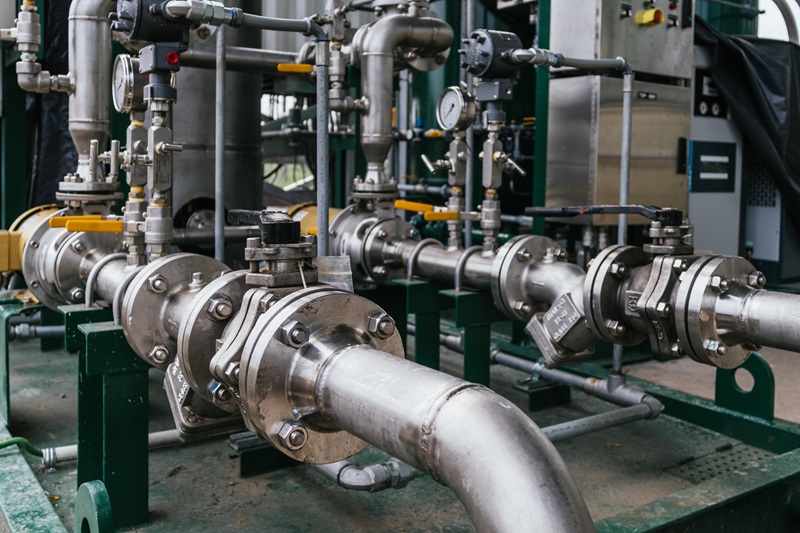Have you ever pondered over the intricacies thriving beneath the seemingly simple lever or knob that starts your machinery? Or wondered what gives your hydraulic systems their mighty power? If so, you’ve probably come across the term “efficiency,” a vital factor in such systems. Whether you operate a small home business, or manage heavy-duty machinery, understanding the efficiency in hydraulic systems directly influences utility costs, workload, and maintenance.
Hydraulic systems have revolutionized industries by transmitting force through pressurized fluid. However, the critical question remains: How does efficiency come into play in such intricately designed systems? Incompetent systems can indeed be a drain on your resources and the environment. Hence, it becomes crucial to evaluate the factors contributing to either efficiency or inefficiency in hydraulic systems, which is the main focus of our blog post today.
This comprehensive guide intends to delve into the world of hydraulic systems, providing detailed insights into its functioning, the factors affecting its efficiency, the impact of inefficiency, and ways to improve efficacy. Join us as we journey through this elaborate comparative study.

Unraveling the Intricate: What are Hydraulic Systems?
Hydraulic systems are an essential part of modern machinery. Operating based on Pascal’s principle, these use pressurized fluid to transfer energy from one point to another. The versatility of this system is evident in its diverse application, ranging from heavy industrial machinery to automatic doors.
However, the efficiency of these hydraulic systems varies widely, depending significantly on the design, construction, operation, and maintenance. An efficient hydraulic system ensures smooth operation, minimum energy loss, and reduced costs. Conversely, an inefficient system leads to energy wastage, malfunctions, and higher maintenance and operational costs.
The Indispensable Factor: Why is Efficiency in Hydraulic Systems Essential?
Efficiency, in simple terms, refers to the optimal use of resources to achieve desired outcomes. Higher efficiency in hydraulic systems means better performance with fewer resources. This maximizes productivity, minimizes operating costs, and contributes to a sustainable future.
Lowered operational costs are vital for any business, regardless of their scale. Efficient hydraulic systems provide a competitive edge by coupling enhanced performance with reduced environmental footprint.
Warning Signs: How to Spot Inefficiency in Hydraulic Systems?
Detecting signs of inefficiency in hydraulic systems is a significant step towards improving their performance. Warning signs may include frequent component failures, slow cycle times, high energy consumption, excessive heat and noise, and fluid contamination.
Diagnosing these early on helps prevent costly breakdowns and allows for timely troubleshooting. It becomes equally important to monitor these systems regularly and maintain them well to ensure optimal performance.
Green Signal: How to Improve Hydraulic Systems?
Improving the efficiency of your hydraulic systems might seem a daunting task. However, incorporating a few tips such as using energy-efficient components, cleaning and maintaining filters, regularly monitoring system performance might lead to significant improvements.
Renowned hydraulic system engineers advise upgrading to variable-speed pumps and motors. This allows the system to match the load requirements, effectively reducing energy waste and allowing better temperature control.
Evaluating Impact: Pros and Cons of Efficient and Inefficient Hydraulic Systems
The benefits of efficient hydraulic systems extend to higher productivity, lower costs, and minimal ecological footprint. In contrast, inefficient systems linger with productivity losses, increased operational costs, and possible ecological issues.
It’s clear that prioritizing efficiency in our hydraulic systems not only serves our business interests but also contributes to our responsibility towards the environment.

Conclusion
As we traverse through the realms of hydraulic systems, we gather an enriched understanding of the significance of efficiency. A critical factor, it stands tall distinguishing a well-functioning, cost-effective system from an inefficient resource-draining one. The close ties between efficient hydraulic systems and lower operational costs, higher productivity, and a sustainable future make it an area worth our attention and investment.
By recognizing early signs of inefficiency and initiating timely measures, we can triumphantly navigate through the challenges posed by hydraulic systems. Complacency in addressing inefficiency can result in economic pitfalls and environmental harm. Thus, let’s aim not only for advanced hydraulic systems but also aim for efficiency in these marvels of engineering. It’s time we take a leap from asking “what” and “why” to truly embrace the “how” of hydraulic systems efficiency.




